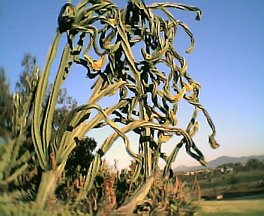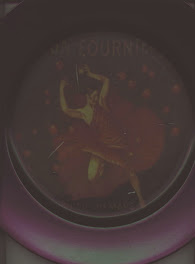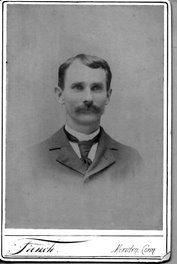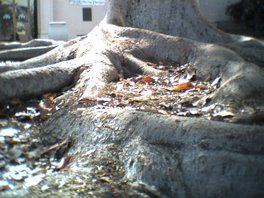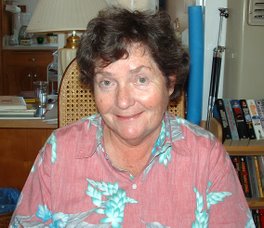Heaven
haven
leaven
Let heaven be the leaven,
the yeast that permeates the bread and urges the dough to rise.
Then let Spirit permeate all beings,
people and plants,
amethyst geodes and ice cream,
whirling atoms in their electron dances.
Havens
My whirling Self which yet breathes spirit.
When I turn inward, there is "the still center of the turning world"
When I contemplate an icon made by human hands
When I cherish a small white flower in straggling grass
When I study a face, hoping to draw from memory
A sacred grove
A man-made cave with vaulted roof and carven pillars
An accidental sight of running water beyond a rock,
and roots writhing from soil.
So many havens.
May heaven haven teach the raging hearts that seek domination
May their tears unite us in our predicament.
Just Learning

Kitchen Studio
Sunday, October 2, 2016
Umpire
American Umpire is not about baseball. It's about the role of the United States as an umpire, intervenor, dispute settler in global politics. Elizabeth Cobbs and James Shelby, in the documentary based on her book, point out that in The Federalist Papers, Hamilton, Madison and Adams used "umpire" to describe the relationship of the Federal government to the governments of the states. As an umpire enforces the rules of a game, the Federal government would judge whether or not states were out of line in their relationships with each other and with the constitution. Otherwise, the states were to conduct their own business in their own ways.
In foreign affairs, for 150 years American government followed George Washington's "Great Rule", of neutrality, non-intervention, and volunteer armies called into being only in major crises.
After the atomic bomb was dropped, after the Second World War devastated much of the world, the United Nations could not prevent Soviet Russia from taking over Eastern Europe. Truman believed it necessary for the United States, the strongest country left, to take some responsibility for the rebuilding of Europe and Japan, and the defense of democracies.
For 70 years, the United States has acted as an umpire who intervenes, sometimes taking sides, sometimes negotiating to bring about peace between combatants. The book and documentary urge assessment of this role, especially when the U.S. pays the bill.
Cobbs and Shelby ask if we have to carry this load for the next 70 years, spending 4% of our Gross National Product on defense, sending our troops overseas. They ask if we can let go of trying to control the outcomes of international conflicts.
In foreign affairs, for 150 years American government followed George Washington's "Great Rule", of neutrality, non-intervention, and volunteer armies called into being only in major crises.
After the atomic bomb was dropped, after the Second World War devastated much of the world, the United Nations could not prevent Soviet Russia from taking over Eastern Europe. Truman believed it necessary for the United States, the strongest country left, to take some responsibility for the rebuilding of Europe and Japan, and the defense of democracies.
For 70 years, the United States has acted as an umpire who intervenes, sometimes taking sides, sometimes negotiating to bring about peace between combatants. The book and documentary urge assessment of this role, especially when the U.S. pays the bill.
Cobbs and Shelby ask if we have to carry this load for the next 70 years, spending 4% of our Gross National Product on defense, sending our troops overseas. They ask if we can let go of trying to control the outcomes of international conflicts.
"The Boleyn King," by Laura Andersen
Minuette, the main character and narrator, interested me right away with her intelligence, humor and hope. In this alternate history, Anne Boleyn's son William lives to become king. Friends in childhood, Elizabeth and Minuette, William and Dominic, trust each other, which affects politics and history as the story builds. I look forward to the next book in the trilogy.
View all my reviews
Friday, April 15, 2016
BAD ADVICE ON GENDER ROLE
A friend's Facebook thread on love, friendship, romance and cultural expectations provoked a vivid memory: I told a trainee psychiatrist that I was supporting myself and my abusive boy friend. Did he tell me to get out of an abusive situation? No. The mental health provider told me I was castrating my boyfriend by working. If I stopped working, the boyfriend would have to "be a man" and get a job. In those days, the cusp of the 50's and 60's, psychiatrists were credited with enormous authority and arcane knowledge. I actually quit a job with a career path! No, the boyfriend did not suddenly become a responsible, reliable "man." He did not get a job. He blamed me, threatened and hit me. I got a part-time job to scrape the rent together, still trying to not castrate this poor victim of female role deviance. It took me two years to give up on the project and leave.
It was that vital to be in a relationship, any kind of relationship, with a man.
See Amatonormativity Harms Us All, on EverydayFeminism.com
It was that vital to be in a relationship, any kind of relationship, with a man.
See Amatonormativity Harms Us All, on EverydayFeminism.com
Thursday, January 21, 2016
Courage to Market My Art
Marketing my art calls for confidence that there are folks out there who would enjoy the way I express myself, and would buy watercolor paintings and cards from me.
Of those who have seen my work, some have purchased it. I'm seeking practical ways to make my images available to more people. Friends have urged me to use Etsy. I'm looking into that. Choosing the focus of my possible shop page, then thinking up a name for it that interests buyers, even deciding on a username, will influence the initial attractiveness of such a shop.
Daymond John, an investor familiar from The Shark Tank, gave some advice on a recent talk show where he was plugging his book, The Power of Broke.
When starting a business:
START SMALL.
Take affordable steps.
HAVE A MENTOR.
Learn from local business owners.
LEARN FROM WHAT DOESN'T WORK.
The business may change from your ideas now. BE OPEN.
Labels:
art,
art sales,
artist,
courage,
joy in art,
marketing,
new beginnings
Tuesday, August 12, 2014
Today at Art Guild
Eclectic new music. Snacks arranged elegantly on a tablecloth. Bard Hall bustling with families and students and lively conversations. The monthly Art Guild meeting at First Unitarian Universalist Church of San Diego was giving two young artists their very first show, and their friends and relatives gave them a joyous reception. The young men spoke about their work and fielded questions and comments confidently and happily. The support and pride given by their community touched me.
During the second hour of the gathering, we saw and discussed works by the members of the Art Guild. I learn from seeing and hearing about the many different styles and approaches to art. I appreciate the critique, encouragement and suggestions on my own work. I'll post some images, if I can figure out how to upload them from iPhoto.
Labels:
art,
Art Guild,
first show,
First UU,
reception,
young artists
Wednesday, October 2, 2013
South African Jewish Writings
"You must have been an elegant woman," commented the stranger at the bus stop. "I used to dress women, advise them on clothing." I do take trouble to match and complement colors, so I appreciated the compliment. I wear hats to avoid skin cancer in glaring San Diego, but I always did like hats. The speaker had an easy, casual, tasteful style herself. This was Tessa Schlesinger, a free lance writer and blogger who has ebooks and paperbacks on Amazon.com. She suggested I look her up on Google, which led to reading an article and buying her publication of articles by her father, on being a Jewish journalist in Hitler's Germany, and then South Africa. Among other publications, Mr. Schlesinger wrote for JTA, Jewish Telegraph Agency, whose website I consult at least once a week now.
It's a period of perennial interest to me. As a teenager I had a dear friend who searched Europe after World War II for 200 relatives, and found none. No records. In my extended family by marriage, hurt silence prevails on the loss of relatives during those killing times. I have always known people with numbers tattooed on their forearms.
In my native New York City I often worked for and with Jewish people of every range of education and economic status. Now at First Unitarian Universalist Church of San Diego, I strive for justice and spiritual development among folks of Jewish, Christian, and Buddhist background. Some of us are theists, many agnostic, humanist, Earth Centered and yet more varied and unique. We find something in a spiritual community that reflects our real lives in a pluralistic, ever rediscovering society. We seek to go beyond tolerance to compassionate living in the belief that everyone and everything is connected.
Well, I hadn't given much thought to Jews in South Africa until now. So I just read a long review in Goodreads of "The Lion Seeker," by Kenneth Bonert. Inspired by his interest in his own family's roots, the novel follows a Jewish family from Lithuania to South Africa between two world wars, through the changes wrought in the second generation. Based on the way Bonert expresses himself in the interview, I'm expecting a well written story.
Subscribe to:
Posts (Atom)


